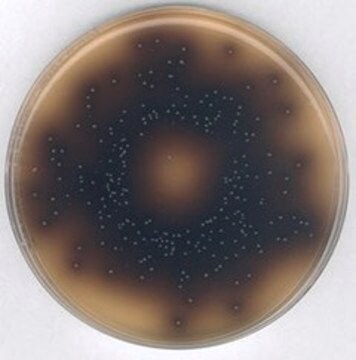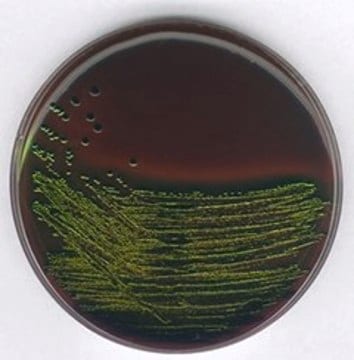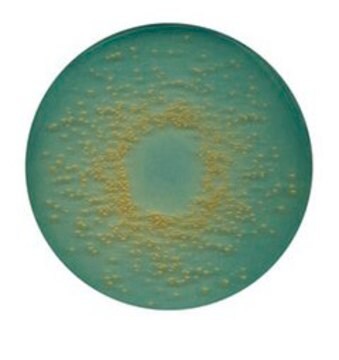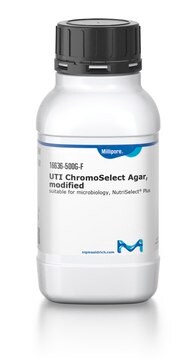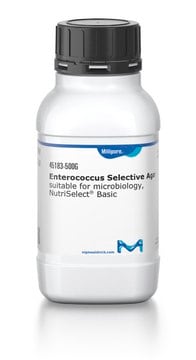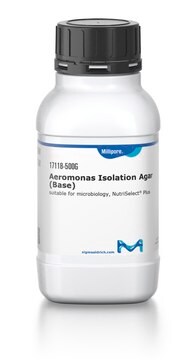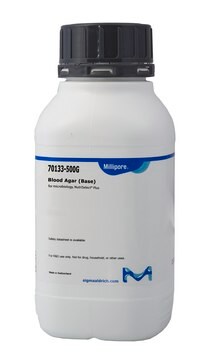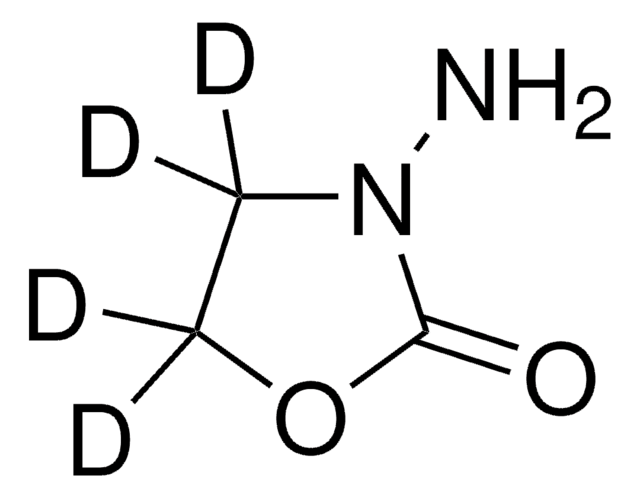56921
Strep B ChromoSelect Selective Agar Base
suitable for microbiology, NutriSelect® Plus
Sign Into View Organizational & Contract Pricing
All Photos(1)
About This Item
UNSPSC Code:
41171606
NACRES:
NA.85
Recommended Products
sterility
non-sterile
Quality Level
form
powder
shelf life
limited shelf life, expiry date on the label
composition
agar, 15.0 g/L
buffers, 2.5 g/L
chromogenic mixture, 2.54 g/L
protein hydrolysate, 17.5 g/L
selective agents, 0.110 g/L
manufacturer/tradename
NutriSelect® Plus
final pH
7.3±0.2 (25 °C)
application(s)
clinical testing
veterinary
microbiology
storage temp.
2-8°C
suitability
Streptococcus spp.
Application
Strep B ChromoSelect Selective Agar Base is recommended for selective isolation of Group B streptococci.
Preparation Note
Suspend 37.65 grams in 1000 ml distilled water. Heat to boiling to dissolve the medium completely. DO NOT AUTOCLAVE. Cool to 45-50°C and aseptically add the rehydrated contents of one vial of Strep B ChromoSelect Selective Supplement (Cat. No. 92650). Mix well and pour in sterile Petri plates.
Footnote
We offer two media types: the superior granulated GranuCult® and the cost-efficient powdered NutriSelect® culture media, depending on your needs.
The designations basic, plus, or prime are added to indicate the quality control level, from basic quality control to standard QC plus to prime for full regulatory compliance.
The designations basic, plus, or prime are added to indicate the quality control level, from basic quality control to standard QC plus to prime for full regulatory compliance.
Legal Information
GRANUCULT is a registered trademark of Merck KGaA, Darmstadt, Germany
NutriSelect is a registered trademark of Merck KGaA, Darmstadt, Germany
Storage Class Code
13 - Non Combustible Solids
WGK
WGK 2
Flash Point(F)
Not applicable
Flash Point(C)
Not applicable
Choose from one of the most recent versions:
Already Own This Product?
Find documentation for the products that you have recently purchased in the Document Library.
B F Anthony et al.
The Journal of infectious diseases, 137(5), 524-530 (1978-05-01)
A longitudinal, three-year study of the epidemiology of group B Streptococcus was conducted with repeated (four to 11) observations of 382 patients followed through pregnancy, delivery, and the postpartum period. Group B streptococci (2.3% of which were nonhemolytic) were isolated
MMWR. Recommendations and reports : Morbidity and mortality weekly report. Recommendations and reports, 45(RR-7), 1-24 (1996-05-31)
Group B streptococcus is a leading cause of serious neonatal infection. Most neonatal GBS infections can be prevented through the use of intrapartum antimicrobial prophylaxis in women who are at increased risk for transmitting the infection to their newborns. However
Murray, P.R., E.J. Baron, J.H. Jorgensen, M.A. Pfaller, and R. H. Yolken (Eds.)
Manual of Clinical Microbiology (2003)
Our team of scientists has experience in all areas of research including Life Science, Material Science, Chemical Synthesis, Chromatography, Analytical and many others.
Contact Technical Service
